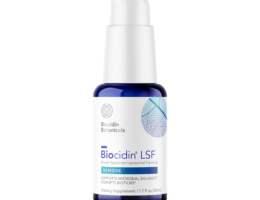Last updated on March 22nd, 2022 at 09:06 am
Quercetin may be your new favorite flavonoid if you didn’t already have one. Did you know quercetin is a more powerful antioxidant than vitamin C, vitamin E, or beta carotene? (1)
Flavonoids are a particular chemical in plants, called phytonutrients, and have a wide range of antioxidant health benefits. It’s one of the most abundant antioxidants in our diet. It plays an important role in helping your body combat free radical damage, which is linked to chronic diseases.

Our bodies can’t make quercetin, but many fruits and vegetables contain it. Some examples would be citrus, capers, onions, green tea, apples, broccoli, cherries, berries, and red wine. Easy on the red wine for all you wine lovers out there as that can really mess up your microbiome. Quercetin’s antioxidant properties have been linked to many health benefits including reducing the risk of cancer, inflammation, allergy symptoms, blood pressure, heart disease, and brain disorders. (2,3)
7 Benefits of Quercetin
1. Reducing Inflammation
Free radicals are unstable atoms in your body that damage cells. More than just damaging cells research shows that high levels of free radicals may help activate genes that promote inflammation. Inflammation is your body’s natural response to injuries or stress and it usually helps the body heal. Increased and prolonged inflammation is linked to health problems such as heart and kidney disease as well as certain cancers.
Studies show that Quercetin may help reduce inflammation. (11) A study on animals found that quercetin showed anti-arthritis properties. It also prevented both chronic and acute inflammation. (4) An 8-week study in 50 women with rheumatoid arthritis observed that participants who took 500 mg of quercetin had reduced markers of inflammation compared to those who received a placebo. (5) It also found those taking quercetin experienced significantly reduced early morning pain, stiffness, and after-activity pain. (5) Bolstering your antioxidant defenses on a daily basis is a great benefit.
2. Promotes Immune Support
Quercetin is an immune support superhero. Before we can appreciate its superpowers we first need to understand how it works with zinc. Zinc is a nutrient that everyone needs to stay healthy. Zinc is found in cells throughout the body. It helps the immune system fight off invading bacteria and viruses. The body also needs zinc to make proteins and DNA, the genetic material in all cells. To bring it all together quercetin acts as a super transporter for getting zinc into cells. Quercetin can also help usher in other nutrients that are critical for immune functions. That’s a pretty great superpower, right?
Quercetin’s superpowers don’t end there for the immune system. Its powerhouse of antioxidant actions provides antiviral and anti-inflammatory properties that support the immune system and help keep you healthy.
3. Preventing Neurological Diseases

Research suggests that quercetin’s antioxidant properties may help protect against degenerative brain disorders, such as dementia, Parkinsons, and Alzheimer’s disease. (12) This is based on the simple premise that oxidative stress is a contributor to the development of brain-related diseases. Oxidative stress occurs when there is an imbalance of free radicals in the body. Quercetin and its antioxidant properties may help fight free radicals.
In one study a quercetin-rich diet reduced markers of Alzheimer’s disease and improved brain function in mice at the early middle stage of the condition. The diet had little effect on middle to late-stage Alzheimer’s disease. (13)
If you love coffee you’ll be glad to know that coffee has been linked to a lower risk of Alzheimer’s disease. Research shows that it’s quercetin in the coffee that’s primarily responsible for the potential protective effects. (14) Another study using quercetin injections on mice showed that several Alzheimer’s markers were improved including learning performance. (15) There’s a good case for Quercetin supporting brain health.
4. Reducing Allergy Symptoms
The main trigger for respiratory and sinus health issues are histamine releases and Quercetin may have a unique ability to block those releases. (16) Animal studies found that it may block inflammation-causing enzymes and help suppress inflammation-promoting chemicals like histamine. Additional research may be needed to fully understand how this translates to humans.
5. May Reduce The Risk of Cancer
Quercetins antioxidant power may have cancer-fighting and tumor-shrinking properties. (17) Research has shown that a diet high in flavonoids such as quercetin can help prevent cancers. Getting lots of fruits and vegetables is a great way to reduce your risk of developing cancer.(18)
A study found quercetin helped suppress cell growth and induce cell death in prostate cancer cells. (19) Other studies have shown that quercetin had a similar effect on other types of cancer cells such as blood, colon, ovarian, lymphoid, breast, lung, and adrenal cancer cells. (20, 21, 22, 23)
7. Lowering High Blood Pressure

Quercetin may have some cardiovascular benefits. According to a 2016 study by the American Heart and Stroke Association, taking quercetin supplements could be an effective way to reduce blood pressure. (8) One meta‐analysis of randomized controlled trials found that supplementing with quercetin may help stabilize blood pressure.(9)
Other research has shown that overweight people who took 150mg of quercetin per day had reduced systolic blood pressure. Systolic pressure measures the pressure in the blood vessels when the heart beats. Individuals in the study also had lower levels of harmful cholesterol in their blood. (10)
What Are The Best Ways To Get Quercetin Naturally?
The best way to get Quercetin is through natural fruits and vegetables including:
- Grapes
- Berries
- Cherries
- Apples
- Citrus fruits
- Onions
- Broccoli
- Kale
- Tomatoes
- Red wine
- Black tea
- Buckwheat
Quercetin is also present in herbal remedies, such as St John’s wort and ginkgo biloba. People can also take quercetin as a supplement such as Pure Encapsulations Quercetin.
Is Quercetin Safe?
Quercetin can be found in fruits and vegetables like broccoli and is safe to consume. The United States Food and Drug Administration (FDA) classes quercetin as a generally safe substance.
When taking Quercetin as a supplement it appears to be generally safe with little or no known side effects. There have been some instances where stomach aches, headaches, or a tingling sensation have been experienced when taking more than 1,000mg of Quercetin per day. Whenever you take a new supplement please consult with your healthcare practitioner to make sure that it’s right for you and your specific health needs.
If you are pregnant or nursing there have not been sufficient studies on taking Quercetin supplements so they should be avoided. When consumed in food Quercetin is safe for pregnant and breastfeeding women.
What Are the Side Effects of Quercetin?

Quercetin’s side effects may include headaches, nausea, and tingling sensations. The side effects may occur when taking over 1,000mg of Quercetin per day on a long-term basis. Kidney damage may also result from high doses and prolonged exposure. Quercetin also may affect sleep quality.
Quercetin may interact with some medications, so please ask your doctor before taking any new supplements to make sure they are right for you.
Quercetin Frequently Asked Questions
Who Should Not Take Quercetin?
If you are pregnant or nursing there have not been sufficient studies on taking Quercetin supplements so they should be avoided. When consumed in food Quercetin is safe for pregnant and breastfeeding women.
What Medications Should Not Be Taken With Quercetin?
Use caution if you are taking drugs such as antibiotics, warfarin, cyclosporine, or drugs that are changed by the liver. Quercetin may change how these drugs work and raise the risk of side effects. There are no known interactions between quercetin and foods or other herbs and supplements but make sure you check with your healthcare practitioner before taking any new supplements to make sure they are right for you.
Is Quercetin Good For the Immune System?
Quercetin is excellent for supporting the immune system as it functions as a transporter for getting zinc into cells. Quercetin can also help usher in other nutrients that are critical for immune functions. By transporting immune-supporting nutrients directly into cells the immune function is boosted.
Does Quercetin Affect Sleep?
According to a study on humans, supplementing with 1,000mg of quercetin per day did not affect fatigue, sleep quality, or energy in normal men or women. (6) A study on rats however showed that quercetin increased non-REM sleep while decreasing REM sleep. (7) As Quercetin acts as a stimulant for the immune system to produce a more efficient and effective response it’s suggested to take Quercetin in the morning. If you find your sleep quality is negatively affected it’s suggested that you stop taking quercetin.
What is Quercetin Phytosome Used For?
Which Quercetin Brand is Best?
There are many great professional supplement brands that sell Quercetin. When looking for a brand we recommend choosing one that follows strict manufacturing protocols. The manufacturer should be Good Manufacturing Practices (GMP) certified. Each piece of equipment should be dismantled and sterilized before each production run. All manufacturing should take place in temperature, humidity, and dust-controlled rooms. Any warehousing should be climate controlled in order to maximize the stability of raw materials and finished products.
Some of our favorite brands that meet these high standards are:
- Pure Encapsulations Quercetin
- Vital Nutrients Quercetin
- Metagenics Quercetin
- Douglas Labs Quercetin Bromelain Complex | Querciplex
Available Supplement Forms
Quercetin supplements are available as pills or capsules. Other flavonoid-rich extracts include those from grapeseed, bilberry, Ginkgo biloba, and green tea. There are also water-soluble forms of quercetin available, such as hesperidin-methyl-chalcone (HMC) or quercetin-chalcone
Quercetin with Bromelain
Bromelain is a plant-based complex of protein-digesting enzymes originally found in pineapple, also known as proteases, that break down proteins into their related amino acids. Bromelain enhances absorption and helps to move quercetin from the digestive tract into the bloodstream. An effective dose of bromelain enhances quercetin absorption helping it be more effective. Bromelain is also a highly effective anti-inflammatory. It’s used to relieve seasonal allergies quite often.
It can help to relieve joint and connective tissue pain for athletes and reduce C-reactive protein. C-Reactive protein is a substance produced by the liver when your body has inflammation. It may be due to serious infection, injury, or chronic disease. Your doctor will recommend other tests to determine the cause.
Bromelain also directly supports athletic performance by facilitating the assimilation of protein. Protein is essential for forming muscles, repairing tissues, and for metabolic enzyme processes in the body. Bromelain frees up amino acids which are the building blocks of protein so they can be better absorbed. Additionally, research confirms that bromelain induces the breakdown of stored fat, which provides steady energy for athletic activity.(8)
References
- Protective Effect of Quercetin against Oxidative Stress and Brain Edema in an Experimental Rat Model of Subarachnoid Hemorrhage
- Flavonoids An Overview
- Flavonoids–food sources and health benefits
- Overviews of Biological Importance of Quercetin: A Bioactive Flavonoid
- The Effect of Quercetin on Inflammatory Factors and Clinical Symptoms in Women with Rheumatoid Arthritis: A Double-Blind, Randomized Controlled Trial
- Effects of 6 Weeks of Quercetin Supplementation on Energy
- Effects of quercetin on the sleep–wake cycle in rats: Involvement of gamma-aminobutyric acid receptor type A in regulation of rapid eye movement sleep
- Dave, Sandeep, et al. “Inhibition of adipogenesis and induction of apoptosis and lipolysis by stem bromelain in 3T3-L1 adipocytes.” PLoS One 7.1 (2012): e30831.
NOTHING IN THIS WEBSITE IS INTENDED AS, OR SHOULD BE CONSTRUED AS, MEDICAL ADVICE. ANY HEALTHCARE AND/OR NUTRITIONAL MATERIAL CONTAINED IN THIS WEBSITE IS FOR CONSUMER INFORMATIONAL AND EDUCATIONAL PURPOSES ONLY. SUCH MATERIAL IS NOT INTENDED AS MEDICAL ADVICE FOR CONDITIONS OR TREATMENT, NOR IS IT INTENDED AS A SUBSTITUTE FOR A MEDICAL EXAMINATION BY A HEALTHCARE PROFESSIONAL. CONSUMERS SHOULD CONSULT THEIR OWN HEALTH CARE PROFESSIONALS FOR INDIVIDUAL MEDICAL RECOMMENDATIONS.
- Brain Health Supplements: 3 That Actually Work and How - June 24, 2025
- 4 Best Supplements For Bloating And a Healthy Gut - June 7, 2024
- 4 Best Green Powders for Bloating From Our Experts - May 31, 2024
* These statements have not been evaluated by the Food and Drug Administration. The products mentioned are not intended to diagnose, treat, cure, or prevent any disease.



